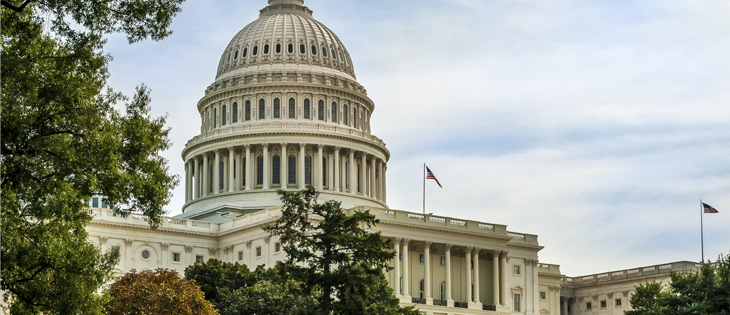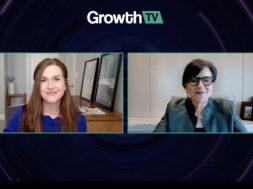Middle-Market Public Policy Roundup
JOBS Act 3.0 passes the House, the Fed chairman testifies before Congress and Trump signs an order to expand workforce development.

In this week’s roundup, we examine JOBS Act 3.0 and its key provisions. We also look at Fed Chairman Jerome Powell’s testimony before Congress and notable comments from two representatives. Plus, we summarize an executive order signed by President Trump designed to prioritize and expand workforce development.
JOBS Act 3.0 Passes the House of Representatives, Senate Prospects Uncertain
The U.S. House of Representatives passed a package of 30 largely bipartisan measures this week in what has been dubbed the “JOBS (Jumpstart Our Business Startups) Act 3.0.” Passed in 2012 and 2015 respectively, JOBS Act 1.0 and 2.0 centered around largely bipartisan measures designed to increase the flow of capital to small and midsize businesses through actions such as lifting the ban on general solicitation offerings for some kinds of private placement offerings; creating a new and more relaxed set of regulations surrounding crowdfunding (rather than lumping them in with other securities offerings); and creating the classification of an “emerging growth company,” which smooths the initial public offering process for businesses that generated less than $1 billion in revenue in the prior two years.
Eight of the bills we reported on last week were included in the new package. Key provisions would impact the following groups:
Accredited Investors. Generally, one could qualify as an “accredited investor” (for the purpose of participating in a private placement offering) if he or she is licensed, registered as a financial professional, or is determined to have the appropriate education or job experience. Currently, “accredited investor” classification is based solely on income designations.
Family Offices. New provisions would clarify that certain wealthy family members whose assets are managed by an exclusive investment office would automatically be designated as accredited investors, and as such, they would be allowed to invest in hedge funds, private equity and venture capital offerings, among others.
M&A Brokers. The provisions would exempt M&A brokers from SEC registration requirements if they meet the following conditions:
- Broker mergers and acquisitions of companies with less than $250 million in gross revenue or $25 million in EBITDA.
- Do not hold, transmit or receive securities exchanged in the transaction.
- Do not handle transactions related to IPOs, or shell companies with no operations or assets.
- Do not provide financing related to the merger.
- Have not been the subject of any securities-related convictions or enforcement actions.
Small Business Investment Companies. The provisions would increase the portion of capital that financial institutions can invest in small business investment companies, known as SBICs, to 15 percent from 5 percent.
Federal Reserve Chairman Powell Testimony and Remarks Re: Volcker Rule
Federal Reserve Chairman Jerome Powell testified before the Senate Banking Committee and the House Financial Services Committee this week as part of his annual testimony on the Fed and the state of the economy. Powell expressed the desire of the Fed to receive feedback based upon its notice of proposed rulemaking related to the Volcker Rule that we have written about previously.
Of particular note were comments by Reps. Frank Lucas, R-Okla., and Steve Stivers, R-Ohio, both of whom addressed concerns about current investment restrictions in the private equity space. Specifically, in reference to the Volcker Rule’s prohibition on investment in private equity and hedge funds by banks, Lucas stated that he is “concerned that the agency’s interpretation of the restrictions on investing in funds that facilitate capital formation has resulted in prohibitions on an activity that we want banks to engage in, such as making long-term investments in American companies to help them grow. These restrictions cut off, as a course, a source of capital, where they are both needed and important to economic growth.”
“These restrictions cut off, as a course, a source of capital, where they are both needed and important to economic growth.”
REP. FRANK LUCAS, R-OKLAHOMA
Stivers added, “You know the preponderance of the wealth that’s invested in private equity and other things is on the coasts. If we were to … allow some of that investment to happen, but separately capitalize those funds at the banks so they can’t just come to the Fed funds … it would really help middle America.”
Trump Signs Executive Order to Prioritize and Expand Workforce Development
On Thursday, President Trump signed an executive order to form a new council and advisory board focused on providing and implementing workforce development in order to retrain workers for high-demand industries.
The new National Council for the American worker will be made up of senior administration officials focused on developing a national strategy for training workers for high-demand industries.
A new workforce advisory board will be established, consisting of leaders from private-sector, educational and philanthropic organizations, as well as state governments that will work with the council and the administration to implement new job-training programs across the country.
Companies and trade groups will be asked to sign the new “Pledge to America’s Workers,” which states the intent to invest in and help to develop a new workforce going forward.
Check back each Friday for the weekly Public Policy Roundup. Is there a policy issue you’d like us to cover? Send your suggestions to MMG Editor Kathryn Mulligan at kmulligan@acg.org.

Maria Wolvin is ACG Global’s vice president and senior counsel, public policy.

Ben Marsico is ACG Global’s manager of legislative and regulatory affairs.


